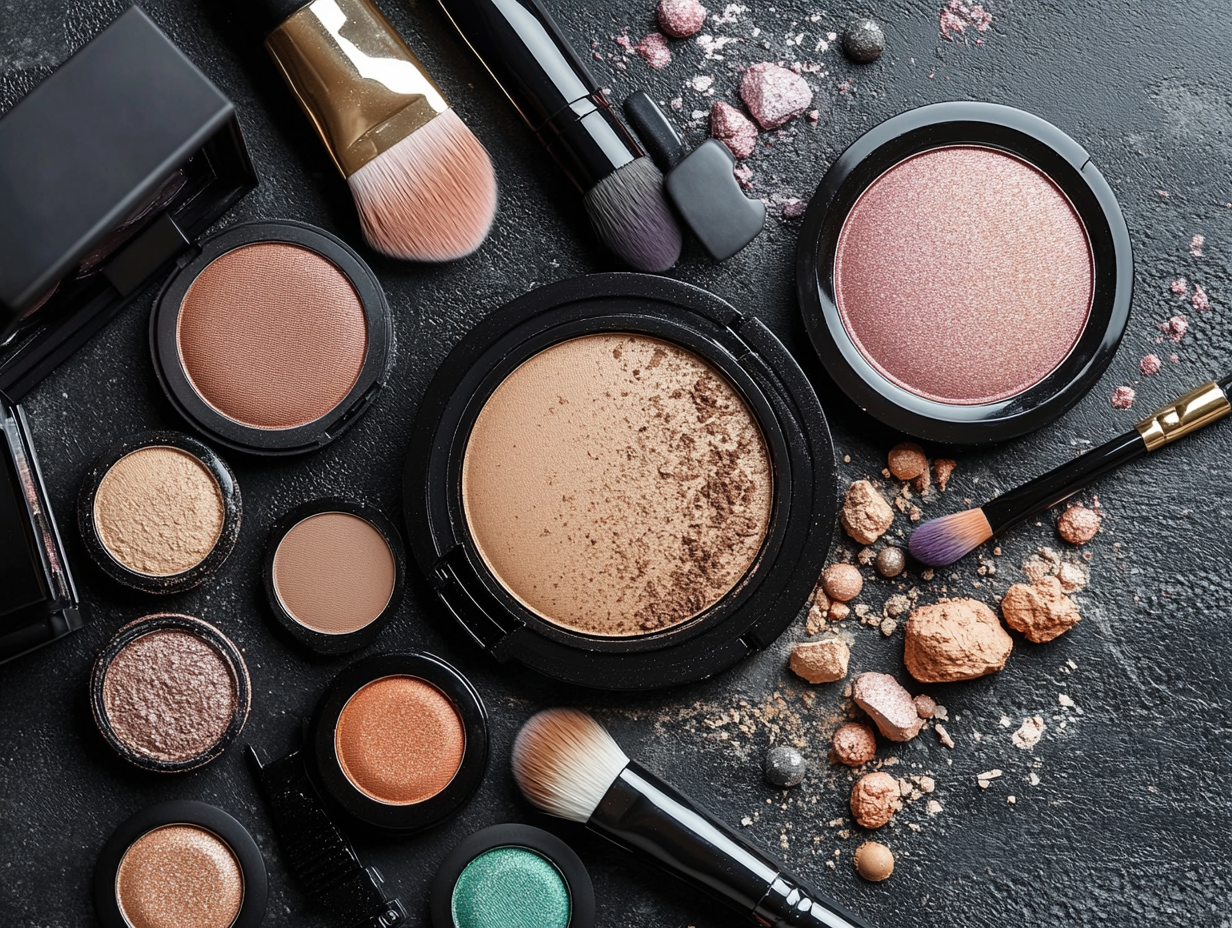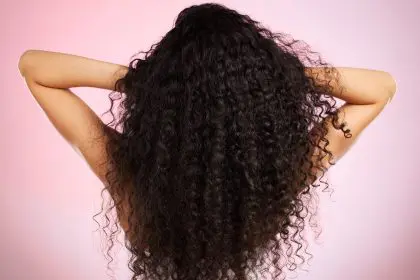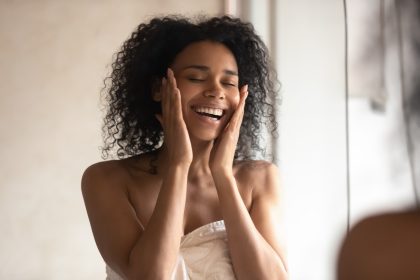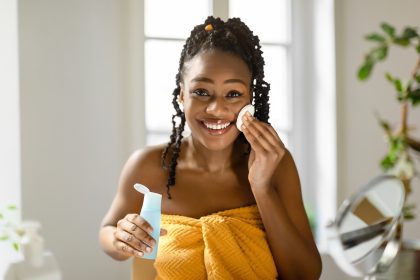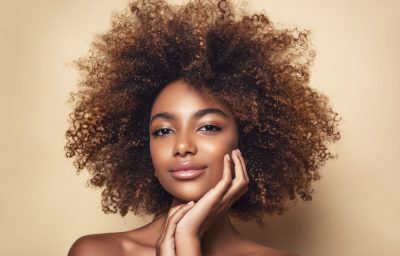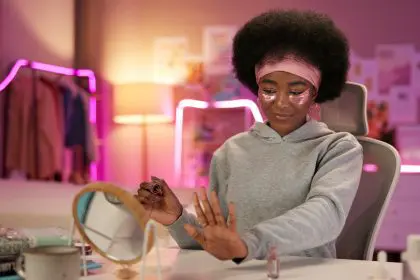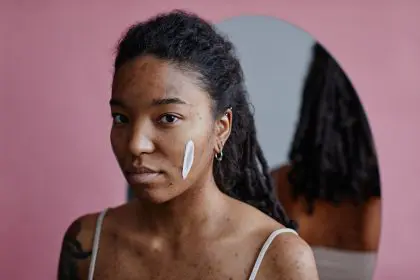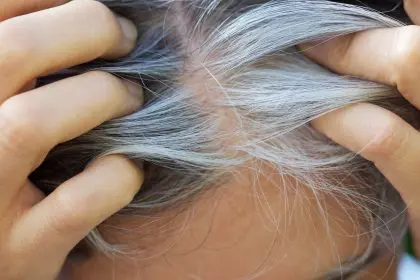You’re scrolling through social media when your favorite celebrity posts about their “life changing” new beauty line. The packaging looks gorgeous, the marketing feels personal, and suddenly you’re convinced you absolutely need that $60 serum to achieve their flawless look, sound familiar? You’re definitely not alone in falling for this incredibly sophisticated marketing machine.
The thing is the beauty industry has turned celebrity launches into a weekly occurrence, and the overwhelming majority of these products are solving problems that either don’t exist or have already been solved by brands that cost a fraction of the price. It’s time someone had an honest conversation about what’s really happening in your makeup bag and your bank account.
The endless celebrity beauty launch cycle
Every single week brings another celebrity beauty announcement, and honestly, it’s getting exhausting trying to keep up. The market has become so oversaturated that it feels impossible to distinguish between genuine innovation and pure celebrity cash grabs designed to capitalize on fan loyalty.
We’ve got singers launching skincare lines, actors creating makeup collections, and influencers developing wellness focused beauty products. The problem isn’t that celebrities shouldn’t be allowed to create businesses. The problem is that most of these launches feel completely disconnected from actual consumer needs or genuine product innovation.
Think about it from a practical perspective. How many different ways can you reinvent foundation, lipstick, or moisturizer? The basic formulations for effective cosmetics have been perfected for decades by companies with massive research and development budgets. Most celebrity brands are essentially putting new packaging on existing formulas and charging premium prices.
When celebrity beauty actually made sense
There was a time when celebrity beauty launches felt revolutionary rather than routine. Fenty Beauty completely changed the conversation around inclusive shade ranges when it launched in 2017, forcing the entire industry to acknowledge that they had been ignoring huge portions of their potential customer base for decades.
That launch worked because it addressed a genuine problem that had been affecting millions of people. Women with deeper skin tones had been struggling to find foundation matches for years, and suddenly there was a brand offering 40 shades right from the start. The success wasn’t just about celebrity endorsement; it was about solving a real problem with an innovative approach.
The difference between that kind of launch and what we see today is stark. Fenty Beauty filled a massive gap in the market with intentional product development. Most current celebrity beauty brands are trying to squeeze into spaces that are already overcrowded with excellent options.
The drugstore alternatives that work just as well
Here’s what the beauty industry doesn’t want you to realize: drugstore brands have been delivering professional quality results for years at prices that won’t require you to choose between groceries and glamour. Brands like E.l.f., NYX, and L’Oréal have been staples in professional makeup artists’ kits long before celebrities started launching their own lines.
You can find lip tints at drugstore prices that perform identically to celebrity branded versions that cost three times as much. The formulations often come from the same manufacturing facilities, which means you’re paying extra for packaging and celebrity association rather than superior ingredients or better performance.
Budget friendly alternatives that deliver results
Black Radiance and Milani have been creating products specifically designed for deeper skin tones for years, often at prices that make beauty accessible rather than exclusive. These brands understand their customers’ needs and have been quietly serving communities without the fanfare and markup of celebrity marketing campaigns.
The reality is that many of these established drugstore brands have more experience, better research capabilities, and stronger relationships with suppliers than celebrity startups that are primarily focused on capitalizing on fame rather than developing genuinely superior products.
The psychology behind celebrity beauty purchases
When you buy a celebrity beauty product, you’re not just purchasing foundation or skincare. You’re buying into the lifestyle, aesthetic, and personal brand of someone you admire. This emotional connection makes it incredibly easy to justify spending significantly more money than you would on functionally identical products.
The marketing teams behind these launches understand exactly how to tap into that emotional connection. They create campaigns that make you feel like you’re not just buying makeup; you’re joining a community or supporting someone whose artistry you genuinely respect and admire.
This psychological manipulation isn’t necessarily malicious, but it is incredibly effective. The question becomes whether you’re comfortable paying premium prices for that emotional experience, or whether you’d prefer to spend your money on products that prioritize performance over personality.
The wellness beauty trend adds another layer
Some celebrity beauty brands have pivoted toward wellness focused approaches, combining skincare with lifestyle messaging about self care and empowerment. While there’s nothing wrong with brands that promote positive messages, this approach often adds another premium to already expensive products.
Skincare brands that emphasize wellness and mindfulness can charge significantly more for basic formulations because they’re selling the experience and philosophy along with the actual product. Again, this isn’t necessarily problematic if you value that experience, but it’s important to recognize what you’re paying for.
The challenge is distinguishing between brands that are genuinely committed to wellness and those that are simply using wellness language as another marketing strategy to justify higher prices for conventional products.
Smart shopping strategies for beauty enthusiasts
Before you get swept up in the excitement of the next celebrity beauty launch, consider asking yourself some practical questions that can save you hundreds of dollars over time. Does this product solve a specific problem you’re currently experiencing, or are you attracted to the idea of owning something associated with someone you admire?
Take an honest inventory of your current beauty routine. Are there gaps that genuinely need filling, or are you already satisfied with products you’re currently using? Sometimes the best beauty purchase is no purchase at all, especially when your existing routine is working well for your skin and lifestyle.
Questions that lead to smarter purchases
Consider whether the product offers something significantly different from alternatives you could purchase for much less money. If a celebrity foundation costs $40 but a drugstore foundation with similar coverage and longevity costs $12, you need to decide whether that $28 difference represents genuine value or celebrity markup.
Think about your beauty priorities and spending patterns. Would you rather own one expensive celebrity product or several drugstore products that allow you to experiment with different looks and techniques? There’s no right answer, but being intentional about your choices leads to more satisfaction with your purchases.
Supporting businesses while being financially responsible
It’s entirely possible to appreciate celebrity entrepreneurs while still making smart financial decisions about beauty purchases. You can support someone’s artistic career through their music, movies, or other creative work without feeling obligated to purchase every product they launch.
Being a smart consumer doesn’t mean being unsupportive of business ventures. It means prioritizing your financial health and making purchasing decisions based on actual need and product quality rather than emotional attachment to celebrity personalities.
The beauty industry will continue launching celebrity brands because they’re profitable, but that doesn’t mean you need to participate in every release. Your skin and your bank account will both benefit from thoughtful, intentional beauty shopping that prioritizes results over celebrity association.
The most empowering approach is developing confidence in your ability to evaluate products based on their merits rather than their marketing campaigns. When you can separate the emotional appeal of celebrity endorsement from actual product performance, you become a much more satisfied and financially responsible beauty consumer.

